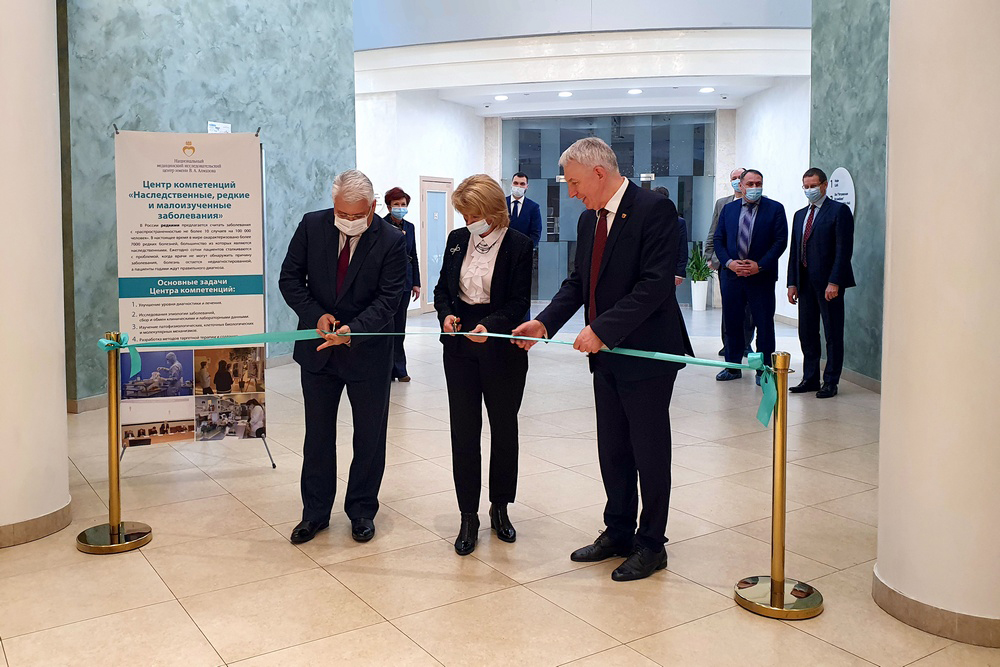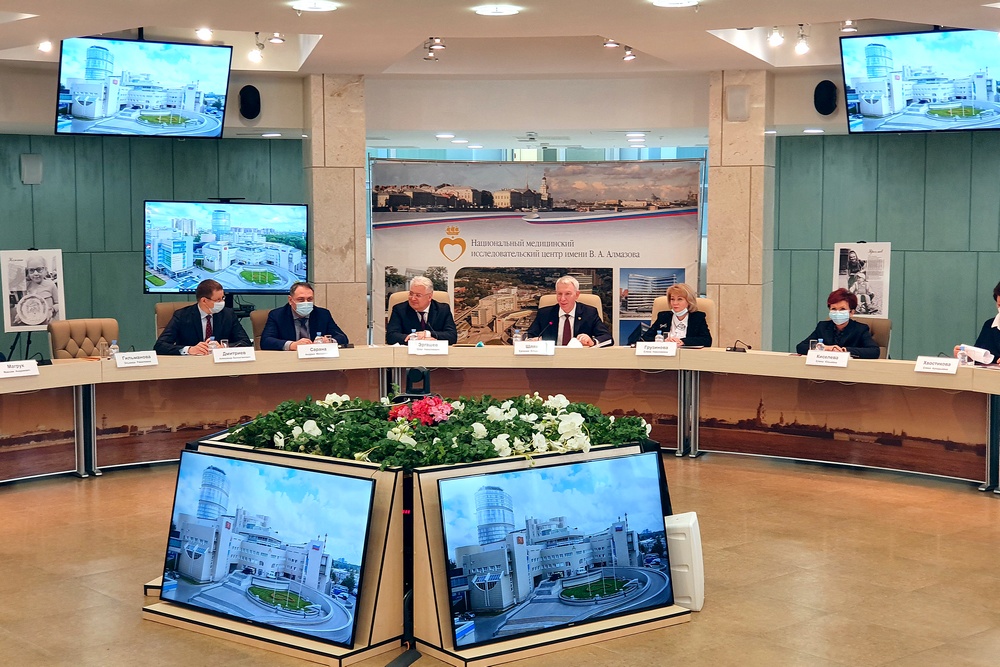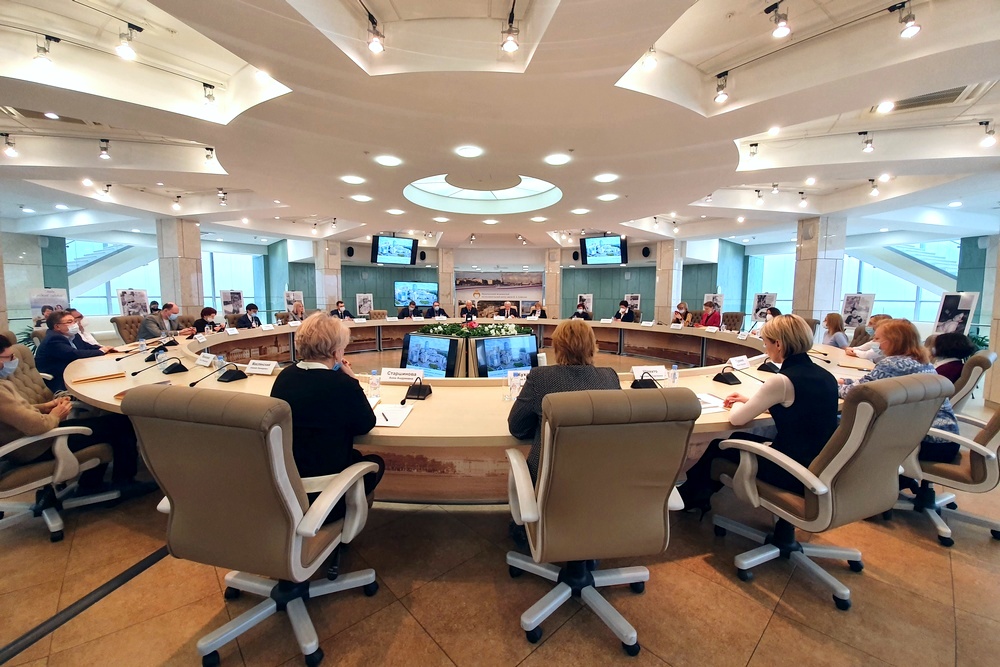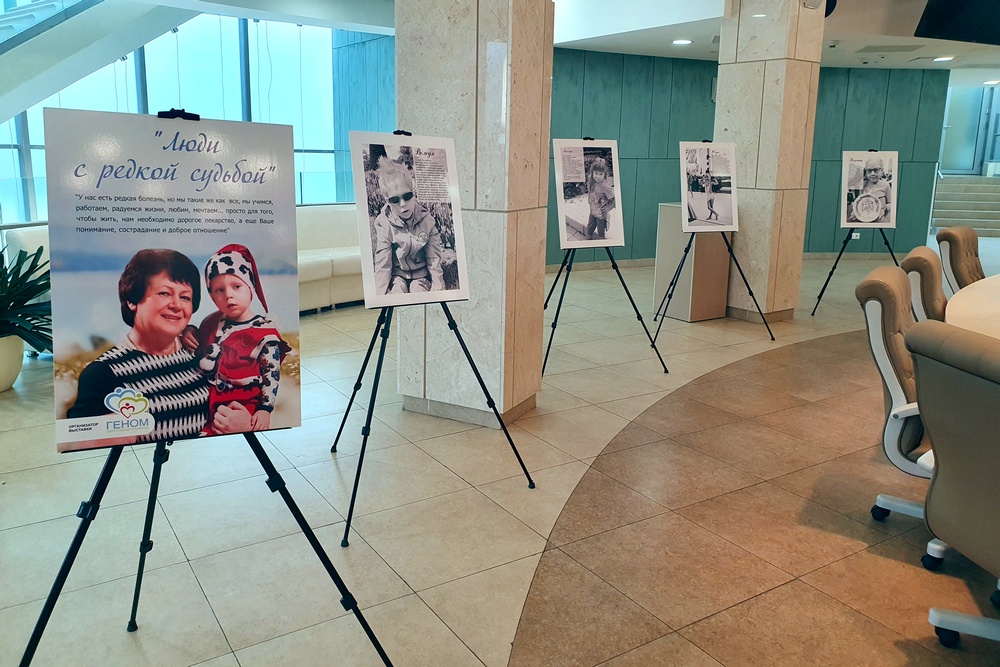
On March 25, Almazov National Medical Research Centre opened the Competence Centre for Hereditary, Rare and Understudied Diseases.
This event also coincides with the Year of Science and Technology in Russia. The Competence Centre has been established at the World-Class Research Centre for Personalized Medicine based on the consortium of two entities – Almazov National Medical Research Centre and the Institute of Experimental Medicine.
Most rare diseases are severe chronic conditions associated with life-threatening manifestations. Their symptoms may be obvious from birth or occur during childhood.
In 2018–2020, more than 200 patients received treatment and testing at the Children’s Rehabilitation Clinic for rare hereditary and orphan diseases such as genetically determined cardiomyopathies, rare variants of autoimmune diseases, congenital central hypoventilation syndrome (also referred to as Ondine's curse), Fabry disease, Pompe disease, hypophosphatasia, Moyamoya disease, methylmalonic acidemia, carnitine deficiency, cholesteryl ester storage disease, etc.

Director General of Almazov Centre began the opening ceremony highlighting that:
“Today, considerable attention is paid worldwide to rare diseases, and this is mostly due to the improved quality of diagnostic services. Basically, these are socially significant diseases, therefore, early diagnosis and initiation of treatment are vital. This is possible in 80% of cases. Our tasks are to improve diagnostic capabilities, genotypic testing, develop targeted therapy. It will be a synergy of research, clinic and education. In each case, we refer to personalized treatment.”
The long-term experience of the clinic and research institutes of Almazov Centre as well as scientific projects and basic experimental research carried out at the World-Class Research Centre for Personalized Medicine have established the framework for the Competence Centre for Hereditary, Rare and Understudied Diseases.
Elena Gruzinova, Head of Coordinating Office for the Spatial Development of Science in the Russian Federation, Department of Science and Technology Policy of the Russian Ministry of Science and Higher Education, expressed confidence that the health of the nation depends on such projects.
The major tasks of the Competence Centre are to improve the quality of diagnosis and treatment of rare diseases, to study the etiology, pathophysiological, cellular, biological and molecular mechanisms of rare and understudied conditions, to develop targeted therapy methods. These ambitious goals can be achieved only by combining the efforts of the clinical, research and educational departments of Almazov Centre and through collaboration with leading national and world research and clinical institutions.
Vice-Governor of St. Petersburg Oleg Ergashev, on behalf of the City’s Governor Alexander Beglov, expressed gratitude to Evgeny Shlyakhto for his work contributing to the image of the northern capital as a leader in breakthrough technologies not only in Russia but worldwide.

Elena Khvostikova, Head of Genome Centre for Relief of Patients and member of the Trustees Board of Almazov Centre emphasized:
“We know, and this is an established practice, that the most complicated, serious cases and severe patients find solutions to their problems here. Even many of our orphan patients who come from different regions, go from one clinic to another in search of a diagnosis and the right treatment, are finally diagnosed here, at Almazov Centre. We are confident that Almazov Centre together with its Competence Centre will remain the leader in this area, support and care for our patients.”

Photo exhibition highlighting the stories of patients “Patients With a Rare Fate”
The project will create interdisciplinary teams with the involvement of innovative IT solutions such as artificial intelligence and machine learning that are already successfully used in other areas of medicine.
